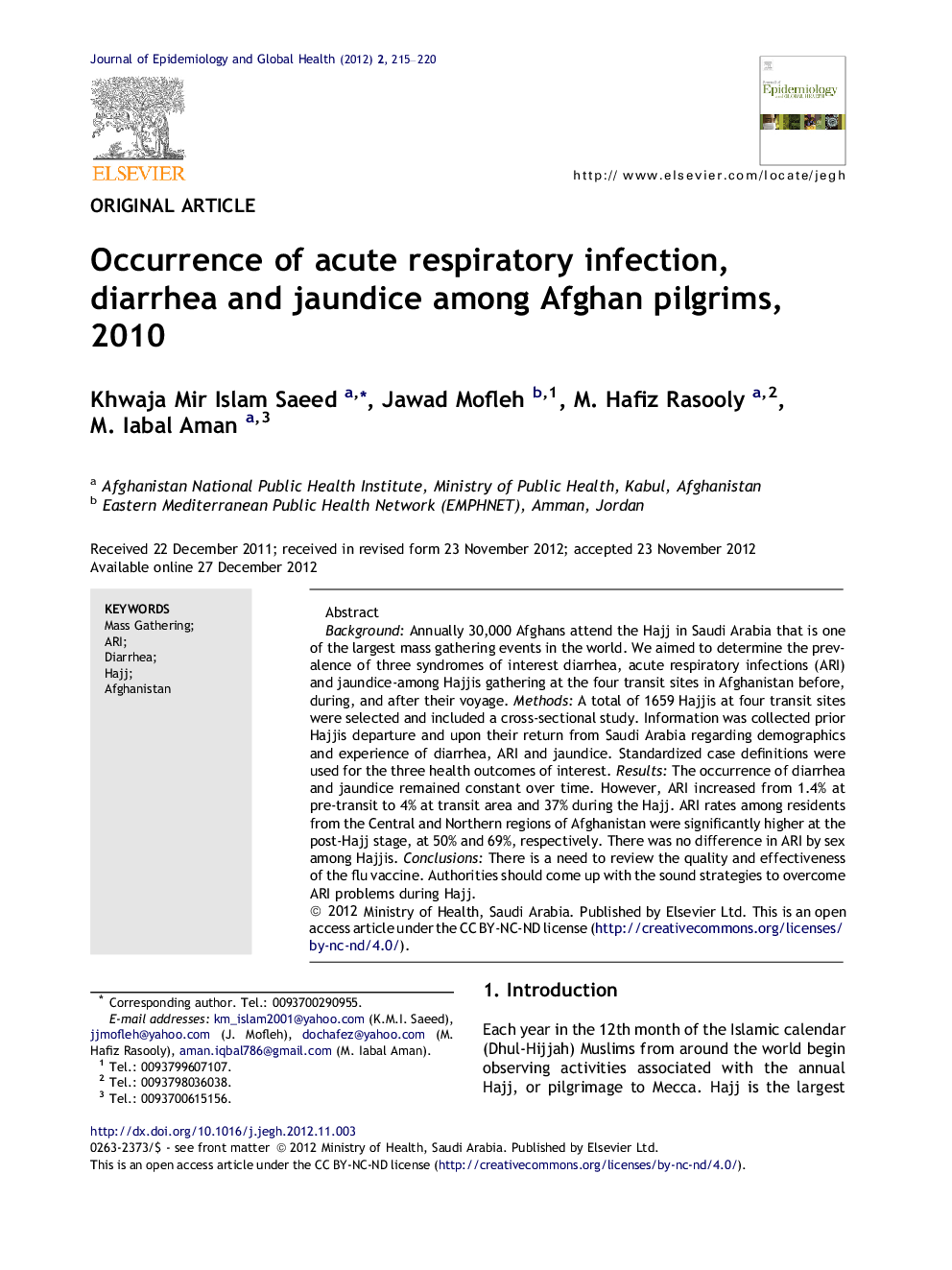| Article ID | Journal | Published Year | Pages | File Type |
|---|---|---|---|---|
| 3327627 | Journal of Epidemiology and Global Health | 2012 | 6 Pages |
Background: Annually 30,000 Afghans attend the Hajj in Saudi Arabia that is one of the largest mass gathering events in the world. We aimed to determine the prevalence of three syndromes of interest diarrhea, acute respiratory infections (ARI) and jaundice-among Hajjis gathering at the four transit sites in Afghanistan before, during, and after their voyage. Methods: A total of 1659 Hajjis at four transit sites were selected and included a cross-sectional study. Information was collected prior Hajjis departure and upon their return from Saudi Arabia regarding demographics and experience of diarrhea, ARI and jaundice. Standardized case definitions were used for the three health outcomes of interest. Results: The occurrence of diarrhea and jaundice remained constant over time. However, ARI increased from 1.4% at pre-transit to 4% at transit area and 37% during the Hajj. ARI rates among residents from the Central and Northern regions of Afghanistan were significantly higher at the post-Hajj stage, at 50% and 69%, respectively. There was no difference in ARI by sex among Hajjis. Conclusions: There is a need to review the quality and effectiveness of the flu vaccine. Authorities should come up with the sound strategies to overcome ARI problems during Hajj.
